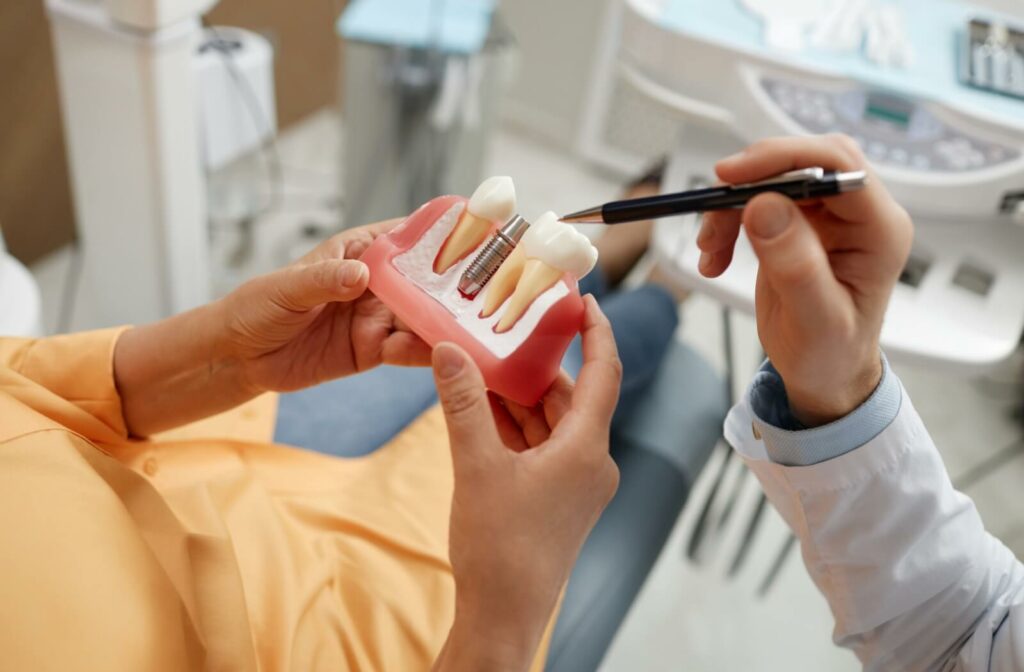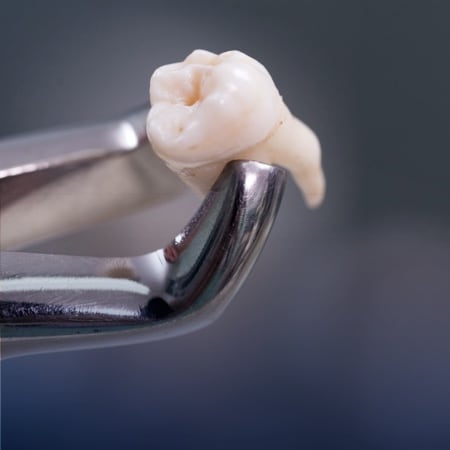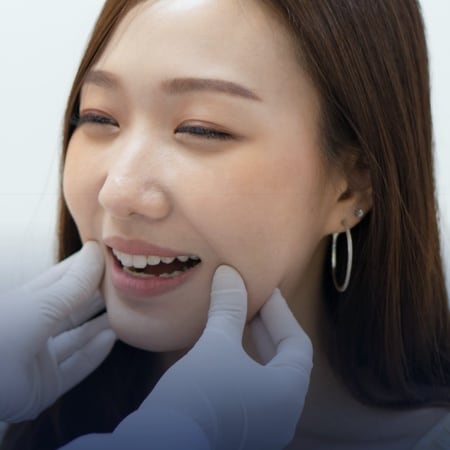Your dental health can be a critical aspect of your overall well-being, especially as you age. With advancements in dental technology, there’s a growing interest about the potential of dental implants as an alternative to getting dentures—including whether or not you can get implants when you already have dentures.
The short answer is yes, you can get dental implants if you already have dentures. Many people are now considering implants as an option for enhancing their oral health and quality of life. However, there are several factors to consider.
Dentures vs. Dental Implants
Understanding the differences between dentures and dental implants is essential for making an informed decision about what is right for you. There are differences to consider across several key areas, including functionality, maintenance, and the potential long-term benefits.
Functionality
- Traditional dentures are removable but can sometimes slip or cause discomfort.
- Dental implants are fixed in place, mimicking the function of natural teeth and offering better stability than dentures.
Maintenance
- Dentures must be removed and cleaned daily.
- Dental implants can be maintained with regular brushing and flossing, similar to natural teeth. They cannot be easily removed.
Long-Term Benefits
- Dentures may need to be adjusted or replaced over time.
- Dental implants are designed to last many years—often even a lifetime—with proper care.
Full Arch Dental Implants
The All-on-4 dental implant method, also known as a full-arch approach, can be an excellent alternative to dentures. This approach involves placing 4 or more specially designed implants in the jawbone, which then support a full fixed bridge—a full row of teeth. This method can be advantageous because it requires fewer implants to fully replace a row of teeth, which can make it less invasive and more cost-effective than other types of dental implants when it comes to replacing several teeth.
While these implants can be an excellent solution for many people, they may not be suitable for everyone. With a thorough consultation, we can help you determine if you’re a good candidate.

Candidacy for Dental Implants
Determining if you’re a suitable candidate for dental implants involves several factors, including bone density and your overall health.
Bone Density
One of the primary criteria for getting dental implants is having sufficient bone density in your jaw to support the implants. If you’ve been wearing dentures for a long time, you may have experienced some bone loss. In those situations, bone grafting techniques may be an option that can increase the amount of bone in your jaw to add support for implants.
Overall Health
Good overall health is crucial for the surgical process involved with getting dental implants. Conditions like diabetes or heart disease may require special considerations but don’t necessarily disqualify you.
Timing
Wondering how long after getting dentures you can get implants? It’s generally advisable to wait until your gums have fully healed from any extractions, which can take several months. The exact amount of time can depend on your personal health.
Transition Period
You might also be concerned about going without teeth before getting implants. For those situations, we may recommend temporary solutions, like immediate-load implants or temporary dentures, that can help ensure you’re never without the support you need for your oral health and well-being during the transition.
The Process of Getting Dental Implants
Here’s a step-by-step guide on what to expect when transitioning from dentures to dental implants:
- Consultation: An initial assessment and imaging to evaluate your bone density and oral health.
- Bone grafting (if needed): A procedure to help increase the amount of bone in your jaw
- Implant placement: Surgical insertion of implants into the jawbone
- Healing period: Time for the implants to integrate with the bone. This can take several months.
- Abutment and crown placement: The process of attaching the artificial teeth to the implants.
- Recovery: We may recommend follow-up visits to monitor your progress and confirm you’re healing safely.

Benefits of Dental Implants Over Dentures
Switching to dental implants can offer numerous advantages, including:
- Improved jaw health: Implants can help preserve jawbone density and prevent further bone loss.
- Enhanced speech: Fixed implants may help eliminate the mumbling or slurring that can occur with ill-fitting dentures.
- More diet options: You may be able to enjoy a wider variety of foods without the worry of dentures slipping or causing discomfort.
- Convenience: There is no need for messy adhesives or nightly removal with implants—they can be maintained just like natural teeth.
Cost Considerations
While dental implants can be more expensive upfront compared to dentures, their long-term benefits may outweigh the initial costs. Here’s a breakdown of what to consider:
- Initial Costs: The cost of the implant procedure, including consultations, surgery, and post-operative care.
- Insurance Coverage: Some dental insurance plans may cover a portion of the costs. It’s essential to check with your provider.
Maintaining Oral Health with Dental Implants
Once you have your dental implants, maintaining them properly can be straightforward, but doing so is also crucial for their longevity. Here are a few tips:
- Brush and floss regularly: Just like natural teeth, implants require regular cleaning.
- Get routine dental checkups: You should still schedule regular visits to your dentist for professional cleaning and monitoring when you have implants.
- Maintain a healthy lifestyle: Avoid smoking and excessive alcohol consumption, which can affect implant health.
Talk to Your Dentist About Implants
Transitioning from dentures to dental implants is not only possible but may enhance your quality of life. With improved functionality and a pathway for better oral health, dental implants can be a viable and worthwhile option for many denture wearers.
If you’re considering this transformative step, we encourage you to speak with your dentist to explore your options. For a personalized consultation, ask for a referral to CVOS Oral Surgery and contact us to take the first step toward getting started.









